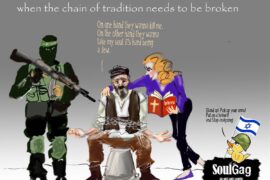“Words are finite organs of the infinite mind. They cannot cover the dimensions of what is in truth. They break, chop, and impoverish it.” -Ralph Waldo Emerson
Words are limiting. Those storytellers that we call talented are the ones who, despite the restrictions of language, are able to evoke emotions and paint images in our minds. Yet, no matter how talented an author or speaker, these images and emotions that are born from words don’t come close to what our own minds imagine when set loose.
Have you ever had a vivid dream that you could play over and over in your head, with every detail intact, but the minute you try relaying the dream to someone else, it becomes fuzzy? This is the exact effect of words on our thoughts, feelings, intuitions, and understanding of the world.
Women are naturally intuitive. There are many reasons offered for this. My personal favorite: every sequential being created during Creation became more and more complex, closer and closer to the Creator, and as women were created last, well… enough said.
It’s also possible that after many thousands of years of childrearing, our natural instincts for detecting danger, understanding what other humans need to survive, and forming deep familial connections naturally evolved into a deeper understanding of the human condition and realities of this world.
Because of this intuition, women naturally understand what men can only hope to learn through experience and education. In the Torah world, where there’s an expectation for Jews to understand our people’s laws and ancient notions of justice, men for the most part learn these through the study of Talmud.
When it comes to women and the Talmud, things get complicated. There are those who say it’s forbidden, those who say it’s not recommended, those who have no issue with it at all, and those who actively encourage women to study Talmud. I’ve heard unsatisfying reasons for each of these positions, and only after hearing men discuss something from the Talmud that seemed so obvious to me did I realize how wrong people gets this. I, personally, do have an issue with women learning Talmud.
After millennia in exile, Jewish women – specifically those of us living in the Western world – forgot our own power. We looked around at our neighbors and saw white women who had been oppressed by their male counterparts for essentially all of time, and who had been able to achieve liberation only through achieving the male standard of success.
Jewish women in the West, whose experiences with their male counterparts had been very different from those of white women, came to believe that we needed to do the same for our own liberation, unfortunately forgetting the power and empowerment a Hebrew woman has both in the Hebrew family and in Jewish society.
While a man could be referred to as the head of his family, his wife must provide direction as the neck. Fathers might serve as the family unit’s foreign minister but mothers are the interior ministers that inculcate the next generation with Israel’s rich ancient values and worldview.
[Important side note: most Mizraḥi women in Israel over the age of 50 don’t relate to first and second wave feminism, having been raised in a culture that respects women and elevates female roles in society.]
This mindset of contextualizing Jewish female experiences within the paradigm of white female experiences causes Hebrew women to strive to achieve “male success” in the Jewish community (i.e. learning Talmud, receiving the title of rabbi, wearing tallit and t’fillin, etc.) – often at the expense of our own roles as women. Seeking to be the head caused us to forget the importance of the neck.
In general, I think people should be able to do what makes them happy. But this becomes dangerous when doing what makes one happy harms them or others. In the case of learning Talmud, it could actually be harmful to women. As I said, words are limiting. Women naturally intuit what men are only able to learn through studying texts. Reducing this natural understanding to words can actually dilute a woman’s ability to connect and fulfill her role, depriving the broader collective of her societal contribution.
Just as Jews conforming to Western identity norms disconnected our people from a lot of what makes Israel unique, I would argue that women attempting to achieve male conceptions of success dulled our special female attributes. Our incredible natural gift was thrown away in order to achieve some fabricated notion of equality.





